Parliament closes painful chapter on foster care
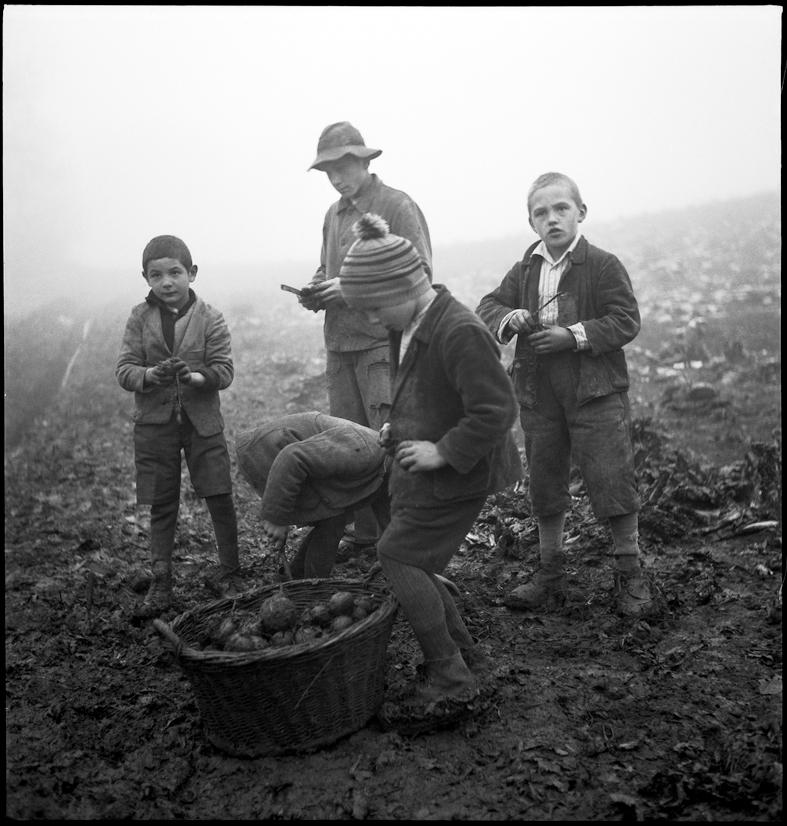
Parliament has approved a CHF300 million ($308 million) financial compensation scheme for victims of a foster care system that included child labour, sexual abuse and forced sterilisations. It is the latest stage of a long and controversial chapter of Switzerland’s social history.
“Today is a historical day. The victims have had to wait for decades for this moment,” said Guido Fluri, the main promoter of financial compensation for the victims of the harsh foster system.
He and some of his fellow activists had tears in their eyes when they faced the cameras in the parliament lobby on Thursday.
A few minutes earlier, the Senate overwhelmingly approved a plan by the government for financial compensation of up to CHF25,000 for each of the estimated 12,000-15,000 people who suffered physical and mental abuse under a strict care policy in force until 1981.
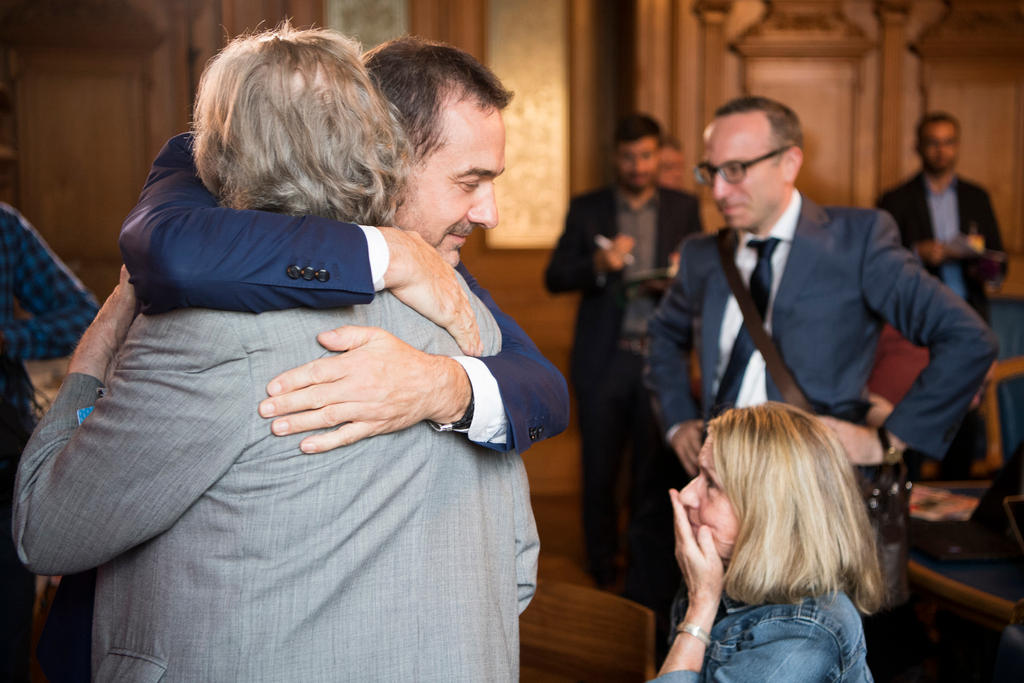
Thursday’s decision confirms a similar move by the other parliamentary chamber, the House of Representatives in April.
“It is an opportunity to close a dark chapter of Switzerland’s social history,” said Senator Joachim Eder during the debate.
Most speakers praised the government proposal, launched in response to a people’s initiative, as a pragmatic solution.
Only one senator spoke out against financial compensation, saying it was wrong to judge the past without taking into account previous ethical and legal standards.
Opportunity
For her part, Justice Minister Simonetta Sommaruga said that past mistakes can’t be undone – not even with money.
She called on parliament to accept the historical fact of the injustice, show respect to the victims and approve compensation payments as a sign of solidarity.
“It is a once in a lifetime opportunity for the victims, for society and the country,” she said.
Sommaruga also urged the senators to consider the situation of men and women jailed for months without legal assistance, because their way of life was considered immoral: “Imagine that!”
The compensation package, which also includes a scientific study of the policy of forced institutionalisations and a child labour review, could be implemented next April according to Sommaruga.
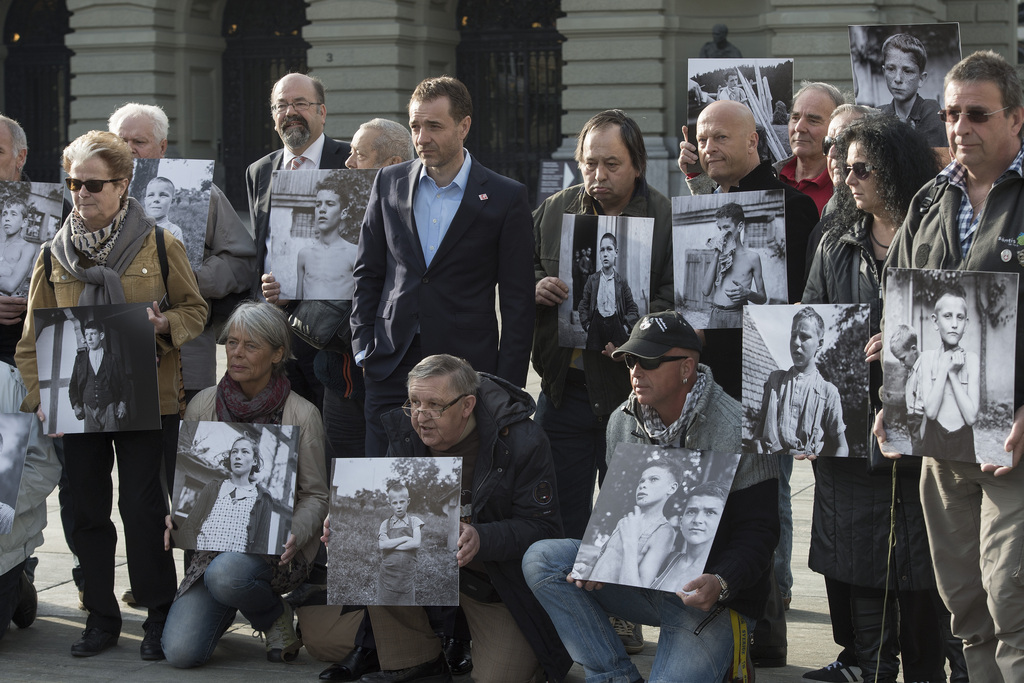
More
Enduring pain of Switzerland’s mistreated children
Initiative withdrawn
A group led by Fluri, a former boys’ home resident turned multimillionaire, in December 2014 handed in enough signatures to force a nationwide vote on a CHF500 million compensation scheme.
The government responded by launching its own proposal in June 2015, which was approved by both parliamentary chambers.
Supporters of the government plan, including Fluri, pointed out that it could be implemented quickly.
“Many of the victims are old and they need the financial assistance. Therefore we have to act now, even if the government proposal foresees smaller payments,” said Senator Eder.
The initiative committee said it was formally withdrawing its people’s initiative at the end of the current autumn session of parliament on September 30.
“We are not afraid of putting our proposal to a vote, but it would take several years before an initiative can take effect,” said Eder.
Other senators also praised the initiative as tool of direct democracy, and a means to put pressure on the authorities to act.
“Without the pressure by the people’s initiative it is hard to imagine that the victims can now benefit from concrete financial compensation,” said Senator Paul Rechsteiner.
Even Werner Hösli, the lone opponent in the Senate on Thursday, described the people’s initiative as a legitimate method to fight for a cause.
Apology and round table
The political debate over the controversial foster care system was launched about three years ago, ending decades of silence over a painful aspect of Switzerland’s transformation into a wealthy and modern society.
In 2013, the government formally apologised for the harm suffered by many so-called “discarded children.” Justice Minister Sommaruga met victims at an official event in Bern.
“I remember it as if it was yesterday,” she told parliament said on Thursday.
She also attended a round table meeting with representatives of the federal and cantonal authorities, the churches, the farmers’ association, and a victims’ group.
The injustices were recognised by the law, whereby people wrongly placed in homes or foster families were granted access to their files. An emergency fund, financed by the cantons and private sponsors, has paid out CHF8.7 million for just over 1,100 victims so far.

In compliance with the JTI standards
More: SWI swissinfo.ch certified by the Journalism Trust Initiative

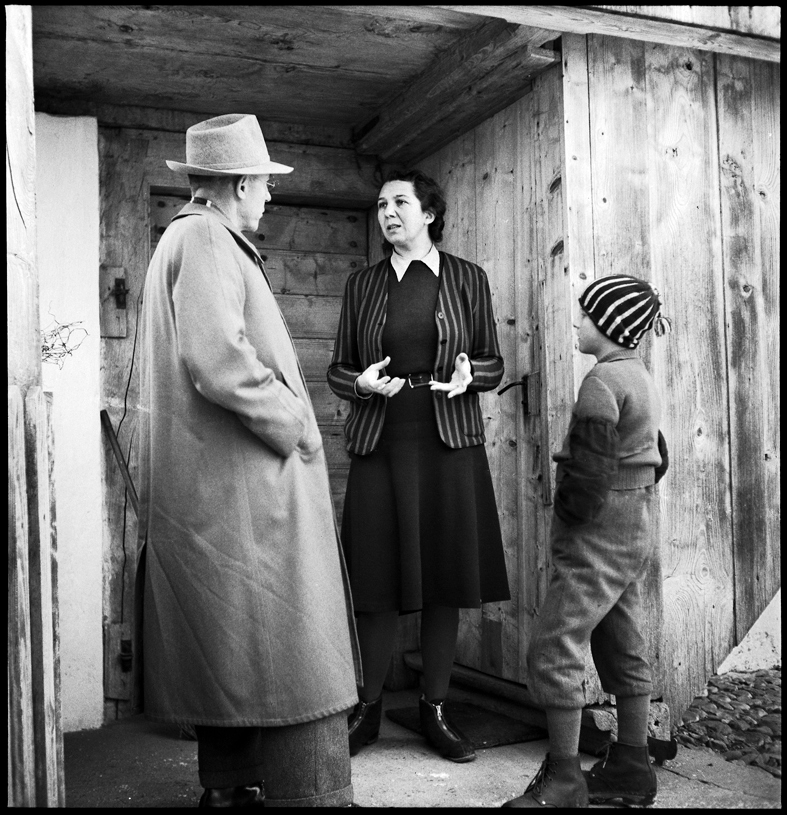
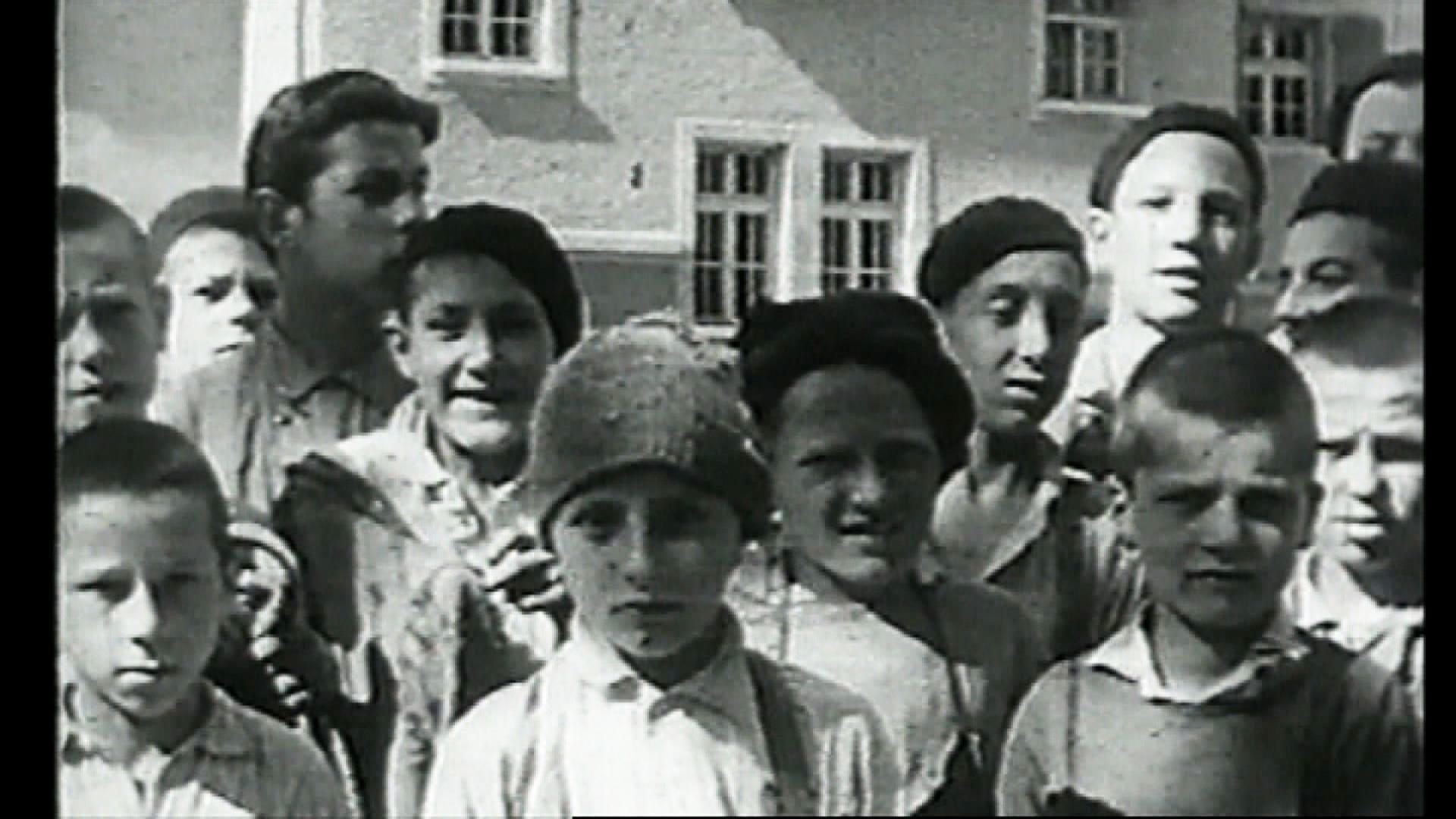
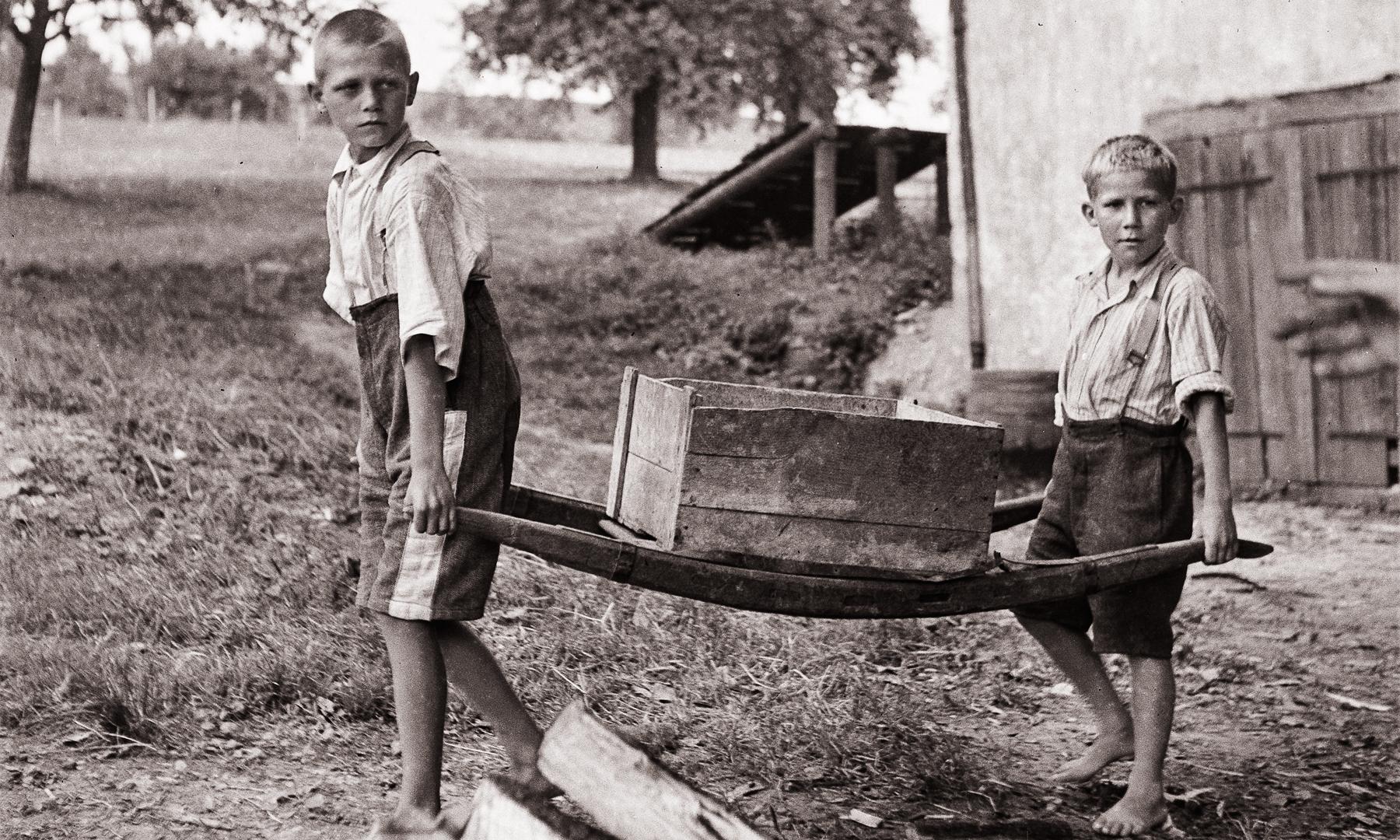
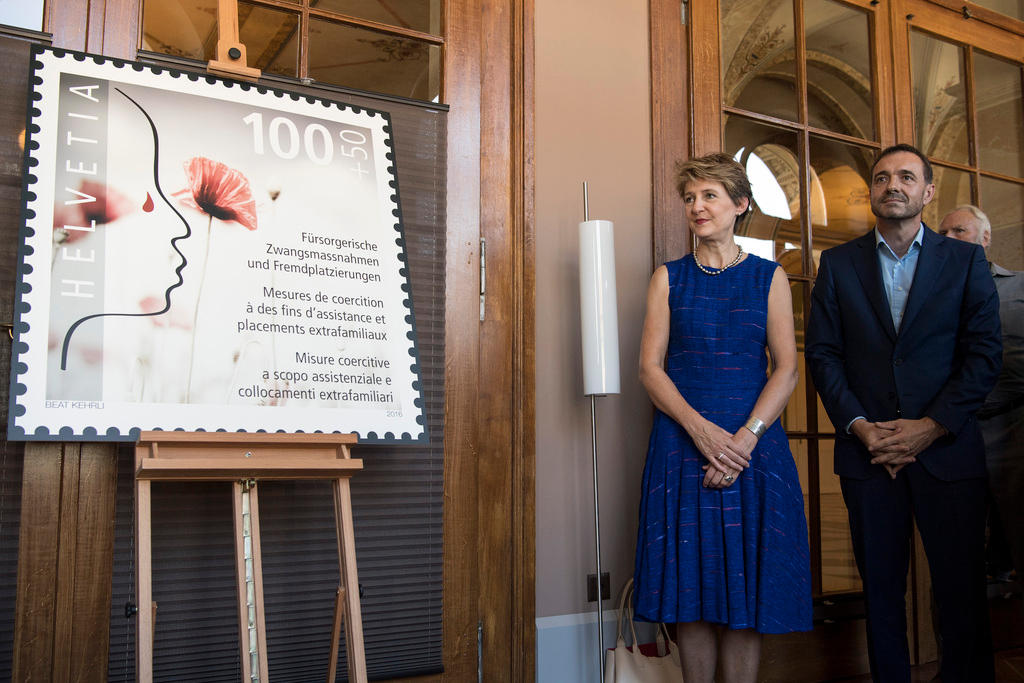
You can find an overview of ongoing debates with our journalists here. Please join us!
If you want to start a conversation about a topic raised in this article or want to report factual errors, email us at english@swissinfo.ch.